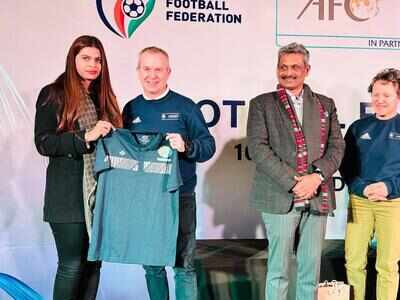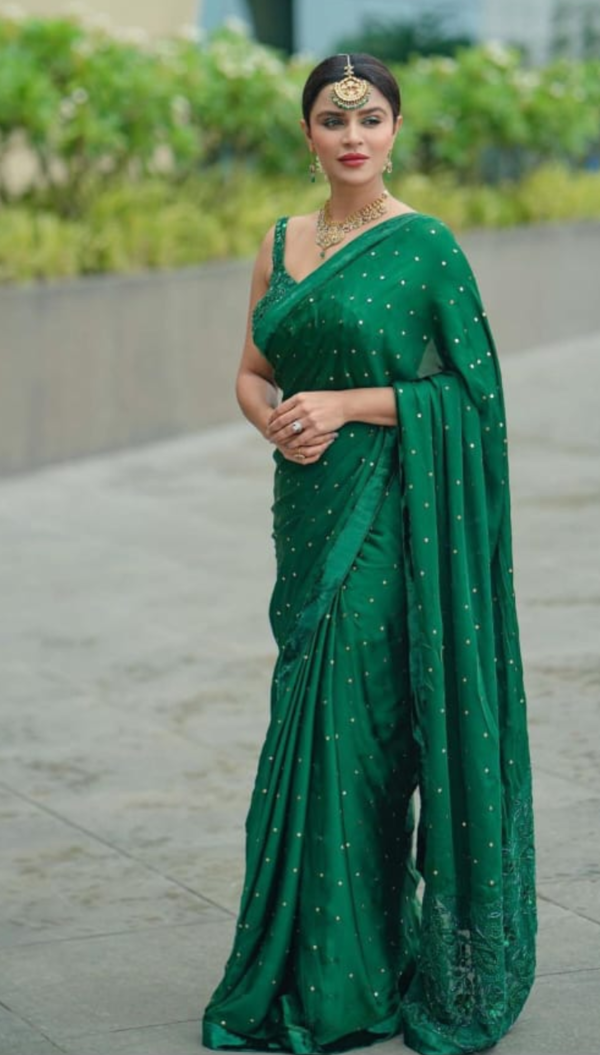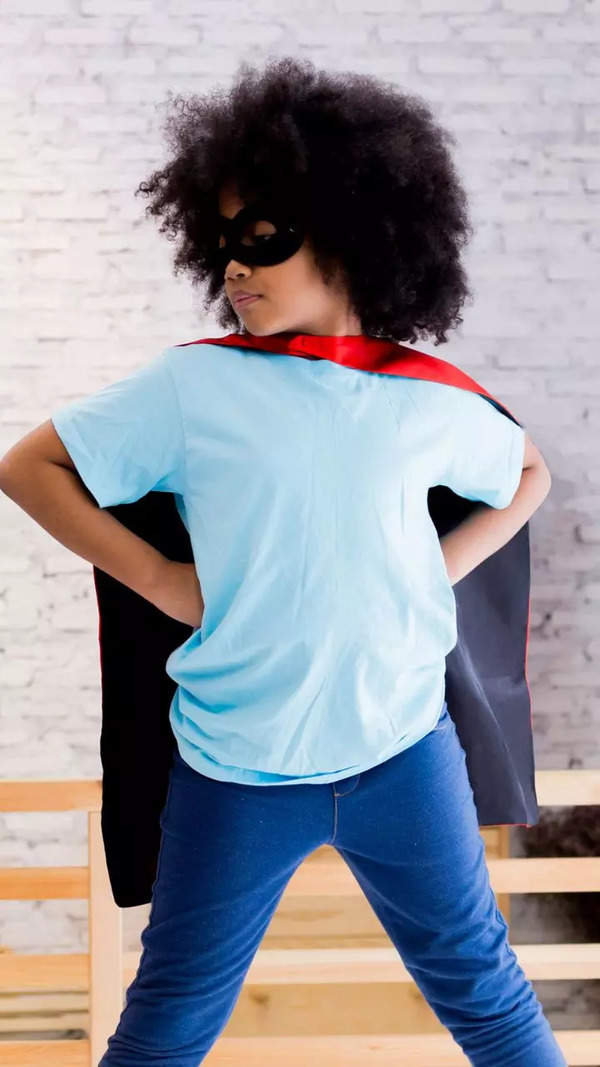Top Searches
Women’s football needs better IWL, junior leagues: Valanka Alemao

AIFF women’s committee chairperson Valanka Alemao (left) welcomes UEFA expert Geoff Wilson during the UEFA Assist Football for Women seminar last week in Delhi
Panaji: At 61, India’s women’s football team is ranked much higher than men (106), and given the competition, many believe the women have better chances of making it to the top tier.
There is a huge disparity though between how men and women’s football is treated in India. At the top, for example, men have the Indian Super League (ISL) that runs for more than five months, while women have to contend with the Indian Women’s League (IWL), a competition that ends no sooner it begins.
“We cannot have the IWL like a tournament, we need a proper league,” said Valanka Alemao, chairperson of the All India Football Federation (AIFF) women’s committee. “It’s difficult for women footballers at the moment. They don’t have proper contracts, they get very little money in wages and they don’t even have a proper competition. How will parents allow their children to play football if there’s nothing in it for them (in the future)?”
The AIFF hosted the UEFA Assist Football for Women seminar last week.
During the four-day seminar, attended by current Indian internationals, former players, coaches, administrators, AIFF officials and representatives from FSDL, the need for women’s football to be given more importance was driven home.
“The need of the hour is to build a proper ecosystem, a pyramid, starting from the grassroots and working right up to the top. There is a need to encourage more states, more girls to take to the game, but unless there’s a clear pathway (to the top), it won’t work.
“UEFA officials were very supportive. They are very keen on grassroots development. We cannot just get players (at the top) without laying the foundation. We have already suggested the need to have under-13, under-15 and under-17 leagues. The FIFA Under-17 World Cup was a great motivator, and with new initiatives, we can attract more youngsters to the game,” said Valanka.
The seminar, consisting of multiple sessions, was customised for different stakeholders within women’s football in the country.
The first day catered almost exclusively to current players and focused on building leadership on-pitch and translating it outside as well. The second day’s session focused on building a culture that supports football for women.
The AIFF-UEFA collaboration was in line with ‘Vision 2047’ which attempts to bring in more investment and increase participation in women’s football in the country.
The final two days of the seminar were catered exclusively for women administrators, leaders, and coaches, many of whom are also members of the AIFF’s women’s committee.
There is a huge disparity though between how men and women’s football is treated in India. At the top, for example, men have the Indian Super League (ISL) that runs for more than five months, while women have to contend with the Indian Women’s League (IWL), a competition that ends no sooner it begins.
“We cannot have the IWL like a tournament, we need a proper league,” said Valanka Alemao, chairperson of the All India Football Federation (AIFF) women’s committee. “It’s difficult for women footballers at the moment. They don’t have proper contracts, they get very little money in wages and they don’t even have a proper competition. How will parents allow their children to play football if there’s nothing in it for them (in the future)?”
The AIFF hosted the UEFA Assist Football for Women seminar last week.
During the four-day seminar, attended by current Indian internationals, former players, coaches, administrators, AIFF officials and representatives from FSDL, the need for women’s football to be given more importance was driven home.
“The need of the hour is to build a proper ecosystem, a pyramid, starting from the grassroots and working right up to the top. There is a need to encourage more states, more girls to take to the game, but unless there’s a clear pathway (to the top), it won’t work.
“UEFA officials were very supportive. They are very keen on grassroots development. We cannot just get players (at the top) without laying the foundation. We have already suggested the need to have under-13, under-15 and under-17 leagues. The FIFA Under-17 World Cup was a great motivator, and with new initiatives, we can attract more youngsters to the game,” said Valanka.
The seminar, consisting of multiple sessions, was customised for different stakeholders within women’s football in the country.
The first day catered almost exclusively to current players and focused on building leadership on-pitch and translating it outside as well. The second day’s session focused on building a culture that supports football for women.
The AIFF-UEFA collaboration was in line with ‘Vision 2047’ which attempts to bring in more investment and increase participation in women’s football in the country.
The final two days of the seminar were catered exclusively for women administrators, leaders, and coaches, many of whom are also members of the AIFF’s women’s committee.
Start a Conversation
FOLLOW US ON SOCIAL MEDIA
FacebookTwitterInstagramKOO APPYOUTUBE










